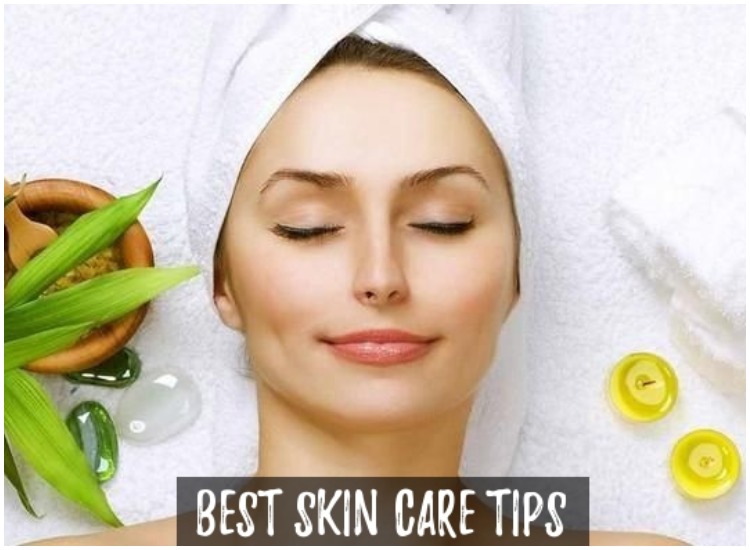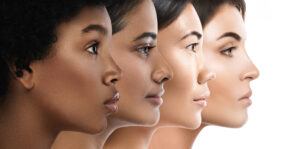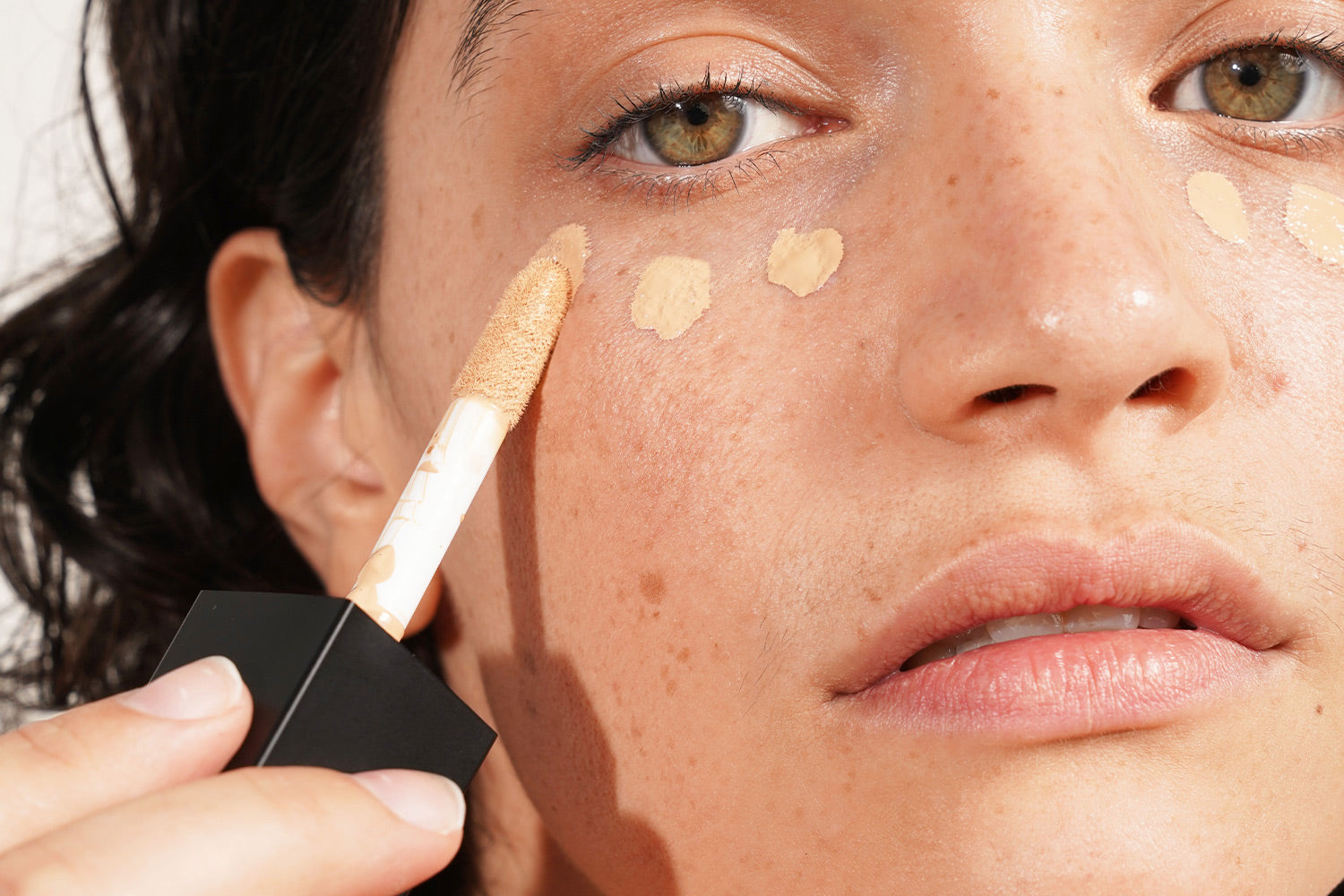I. Introduction
Achieving smooth and even skin is a common beauty aspiration for many individuals. Unfortunately, various factors such as sun exposure, acne, and melasma can contribute to an uneven skin tone. Although there is no universal solution of Remedies, there are numerous remedies available to enhance the appearance of uneven skin.
A. Definition of Uneven Skin Tone
Uneven skin tone is a condition where the skin has different colour shades. It can be caused by factors like sun exposure, acne, melasma, and genetics. The severity can range from mild to severe and it can be temporary or permanent. Common types include hyperpigmentation (excess melanin production), hypopigmentation (insufficient melanin production), rosacea (redness and pimples), and post-inflammatory hyperpigmentation (darkening after injury or inflammation). Improving uneven skin tone can be done by wearing sunscreen, regular exfoliation, using products with brightening ingredients, and consulting a dermatologist for severe cases.
B. Causes of Uneven Skin Tone
- Sun exposure is the leading cause of uneven skin tone, resulting in dark spots, sun spots, and hyperpigmentation.
- Acne can contribute to uneven skin tone, leaving behind dark spots or areas of lighter skin during the healing process of acne lesions.
- Melasma is a condition characterised by brown or grey patches on the face, often triggered by hormonal changes in women.
- Rosacea is a chronic skin condition causing redness, flushing, pimples, and can also lead to uneven skin tone.
- Post-inflammatory hyperpigmentation occurs after injury or inflammation, commonly seen after acne breakouts.
- Genetics play a role in uneven skin tone, as some individuals are more prone to this condition.
- Certain medications, such as steroids and anticonvulsants, can cause uneven skin tone.
II. Lifestyle Changes for Even Skin Tone

A. Stay Hydrated
Ensuring an adequate intake of water helps keep the skin hydrated and plump, reducing the visibility of wrinkles and fine lines. It also aids in eliminating toxins and promotes a healthy and radiant complexion.
B. Use Sunscreen
Sun exposure stands as a primary cause of uneven skin tone. Applying sunscreen daily serves as a preventive measure against the formation of new dark spots and helps diminish the appearance of existing ones. Opt for a broad-spectrum sunscreen with an SPF of 30 or higher.
C. Avoid Certain Foods and Drinks
Some food and beverages can exacerbate skin irritation and worsen uneven skin tone. These include:
- Alcohol: Dehydrates the skin, increasing its susceptibility to damage.
- Caffeine: Can also dehydrate the skin and make it more prone to sun damage.
- Sugar: Promotes inflammation in the body, contributing to uneven skin tone.
- Processed foods: Often contain unhealthy fats, sugar, and salt, all of which can contribute to uneven skin tone.
III. Natural Ingredients for Even Skin Tone

A. Vitamin C
Vitamin C possesses potent antioxidant properties that effectively aid in brightening the skin and minimising the visibility of dark spots. Additionally, it serves as a beneficial source of hydration, contributing to a nourished and vibrant complexion.
B. Niacin
Niacin, or vitamin B3, is a potent antioxidant that aids in brightening the skin and enhancing its overall appearance. Additionally, it provides ample hydration, contributing to healthier-looking skin.
C. Witch Hazel
Witch hazel, a natural astringent, possesses properties that can tighten the skin, minimise the appearance of pores, and contribute to a brighter, more even skin tone.
D. Rosehip
Rosehip oil, a natural oil abundant in antioxidants and essential fatty acids, possesses the potential to enhance skin health while also diminishing the visibility of dark spots and wrinkles.
E. Nigella Sativa
Black seed oil, scientifically known as Nigella sativa, is a natural oil that offers several advantages for the skin. It has been proven to enhance skin tone and diminish the visibility of dark spots.
F. Kojic Acid
Kojic acid, a natural compound, has the ability to suppress the production of melanin, the pigment responsible for skin colour. As a result, it can assist in reducing the visibility of dark spots and promoting a more balanced and even skin tone.
IV. Chemical Treatments for Even Skin Tone

A. Chemical Peels
Chemical peels are a treatment method that involves the use of acids to exfoliate and remove the outermost layer of the skin. This process aims to enhance the overall complexion of the skin by diminishing the visibility of various skin concerns, such as dark spots, wrinkles, and age spots.
B. Glycolic Acid
Glycolic acid, classified as an alpha-hydroxy acid (AHA), is frequently used in chemical peels. It effectively aids in exfoliating the skin and enhancing the visibility of dark spots.
C. Salicylic Acid
Salicylic acid, a beta-hydroxy acid (BHA), is frequently utilised in chemical peels for its exfoliating properties and its ability to diminish acne’s visibility.
V. Medical Options for Even Skin Tone
A. 4 Percent Hydroquinone
Hydroquinone is a cream applied topically to lighten dark spots. It is accessible without a prescription in a 2 percent strength formulation, while a stronger cream of 4 percent strength requires a prescription.
B. Laser Treatment
Laser treatment involves the utilisation of lasers to eliminate dark spots from the skin. This form of treatment is known to be more efficient than hydroquinone, although it is also associated with higher costs.
C. Clinical-Strength Peels
Clinical-strength peels refer to a category of chemical peels that possess greater potency compared to over-the-counter peels. These peels have the potential to effectively diminish the visibility of dark spots; however, it is important to note that they may also provoke more skin irritation Remedies.
D. Professional Microdermabrasion
Professional microdermabrasion is a treatment method that involves utilising a machine to exfoliate the skin, aiming to enhance the appearance of dark spots and promote a more uniform skin tone.
VI. Makeup Techniques for Concealing Uneven Skin Tone

Here are some techniques for using makeup to conceal uneven skin tone Remedies:
- Begin by applying a good primer to create a smooth base for your makeup and ensure its longevity throughout the day.
- Utilise a colour corrector, which is a tinted cream that can neutralise specific imperfections. For instance, a peach-coloured corrector can counteract the appearance of dark circles under the eyes, minimising blue or purple hues.
- Apply a suitable foundation that closely matches your skin tone. Consider using a foundation with built-in SPF to protect your skin from the sun.
- Concealer is an effective tool for hiding dark spots and imperfections. Apply it to the targeted areas and blend it thoroughly for a seamless finish.
- Set your makeup by using a powder. This will help to maintain its longevity and prevent it from smudging throughout the day.
- To achieve a natural, dewy look, consider using a finishing spray. This spray will provide a subtle glow and help your makeup appear more natural.
VII. Warning About Injectable Products
Here are some cautions to consider regarding injectable products:
- Proper administration of injectable products is crucial and should only be performed by a licensed medical professional Remedies. Incorrectly injecting such products into the skin can pose risks, including infections, scarring, and other complications.
- It is important to be cautious of injectable products that are not FDA-approved. Numerous injectable products available in the market lack FDA approval, which raises concerns about their safety and effectiveness.
- Prior to undergoing any injectable treatments, it is advisable to conduct thorough research. Discussing the risks and benefits of injectable treatments with a doctor or dermatologist is essential. They can provide guidance and help identify a safe and effective treatment option tailored to your specific needs.
VIII. Home Remedies for Uneven Skin Tone
A. Yogurt, Lemon, and Turmeric Mask
This mask offers an excellent solution for enhancing skin radiance and minimising the visibility of dark spots. Yoghurt acts as a natural exfoliant, aiding in the removal of dead skin cells. Lemon juice serves as a natural bleaching agent, contributing to skin lightening. Turmeric acts as a natural antiseptic, reducing inflammation and promoting overall skin health.
B. Baking Soda, Gram Flour, and Goat Milk
This mask provides an effective method for exfoliating the skin and eliminating dead skin cells. Baking soda serves as a natural abrasive, aiding in the removal of dead skin cells. Gram flour acts as a natural detoxifier, assisting in the elimination of skin impurities. Goat milk acts as a natural moisturiser, helping to maintain skin hydration.
C. Multani Mitti and Rose Water
Using this mask is an excellent method for purifying and detoxifying the skin. Multani mitti, a natural clay, effectively absorbs impurities from the skin. Additionally, rose water, a natural toner, aids in maintaining the skin’s pH balance.
D. Honey, Tomato, and Lemon Juice
This mask offers an excellent solution for brightening the skin and minimising the visibility of dark spots. Honey, a natural humectant, aids in maintaining skin hydration. Tomato, a natural bleaching agent, assists in lightening the skin. Lemon juice, a natural astringent, helps to tighten the skin.
IX. Conclusion
Uneven skin tone is a prevalent issue that can impact individuals across various age groups. There exists a wide range of treatments to address this concern, including over-the-counter products, prescription treatments, and home remedies. However, determining the most suitable treatment for your specific case depends on the severity of your uneven skin tone and your unique skin type.
Before initiating any treatment for uneven skin tone, it is crucial to consult with your doctor 17 Remedies for More Even Skin or a dermatologist. Their expertise will aid in identifying the optimal treatment option tailored to your specific requirements, ensuring both effectiveness and safety.
